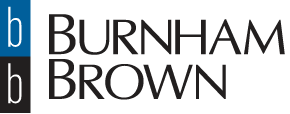February 14, 2011
By:
"Speedy" and "cost-effective" have never been words associated with jury trials, until now. On January 1, 2011, California's Expedited Jury Trials Act became effective. This new law now gives litigants a choice that involves balancing the potential savings on litigation costs by completing jury trials in one day, against the waiving of appeal rights and a reduced trial presentation. The Expedited Jury Trial Act is found in California Code of Civil Procedure Sections 630.01 through 630.09 and California Rules of Court, Rules 3.1545 through 3.1552.
The goal of the expedited jury trial process is to complete the trial in one day. Although there is some flexibility as to what may be included in the Consent Order that initiates the expedited jury trial, including the use of a "high-low agreement", the parties must agree to the following:
- A waiver of nearly all rights of appeal and most post-trial motions;
- That each side have no more than three hours to present its case;
- That each side be limited to three peremptory challenges; and
- That the jury be composed of eight or fewer jurors with no alternates.
Some of the unique features of the expedited jury trial process are as follows:
- A verdict that requires at least six jurors, unless the parties stipulate to a lesser number;
- Preservation of the rules of evidence and civil procedure, while simultaneously encouraging the parties to stipulate in advance to the admission of evidence;
- The option of using "relaxed rules of evidence," which do not affect a party's right to assert certain privileges; and
- The option of using a written "high/low agreement" (that is concealed from the jury) where each side specifies a minimum and maximum amount of damages for which the defendant will be liable, regardless of the jury's verdict.
Furthermore, under the California Rules of Court, the parties have the option of stipulating to the modification of procedural issues including the service and exchange of pretrial submissions, the exchange of expert witness information and presentation of testimony by such witnesses, and the admissibility and use of evidence and documents at trial. Significantly, the Rules of Court allow for a modification as to the allocation of time proscribed for case presentation. Finally, the expedited jury trial process requires that the parties participate in a Pre-Trial conference at least 15 days before trial.
Parties that stipulate to an expedited jury trial give up certain rights. As part of the Consent Order authorizing an expedited jury trial, the parties agree that the verdict is binding and that they waive their right to appeal any of the matters determined by the jury. In addition, the parties waive their right to file the following motions:
- Motions for directed verdict;
- Motions to set aside the verdict or any judgment rendered by the jury; and
- Motions for a new trial on the basis of inadequate or excessive damages.
An expedited jury trial can be used in cases involving self-represented litigants, a minor, an incompetent person, or a person for whom a conservator has been appointed, although the court must approve of its use in these circumstances.
Although the statute states that the agreement to participate in an expedited jury trial is binding upon the parties, the parties can agree to end the agreement, or upon a showing of good cause by one of the parties, the Court may order the matter not to proceed as an expedited jury trial.
At this time of fiscal crisis for our state courts, we anticipate that all courts will embrace the expedited jury trial process and quickly implement a protocol to incorporate it into their already existing case management system and request that all parties strongly consider using it.
Expedited jury trials serve as an attractive option that provides a "middle ground" between one of the various forms of ADR and a costly full blown jury trial. Burnham Brown's experienced trial lawyers can help you take advantage of this new option that is now available to help resolve litigation throughout all of California. We look forward to the opportunity of counseling you on its possible use in the cases you currently have pending in California.
Paul Caleo is a partner and one of Burnham Brown's premier trial lawyers. He has extensive experience in complex tort and catastrophic injury cases involving premises liability, product liability, retail theft and battery cases, government and public entity defense commercial trucking and construction site accidents. Mr. Caleo has extensive trial experience that includes trying 14 jury trials and two binding arbitrations in the past eight years. Mr. Caleo can be reached at 510.835.6809 or pcaleo@burnhambrown.com. Michelle D. Jew's practice focuses on general litigation with an emphasis on products liability and environmental cases. She can be reached at 510.835.6715 or mjew@burnhambrown.com.

